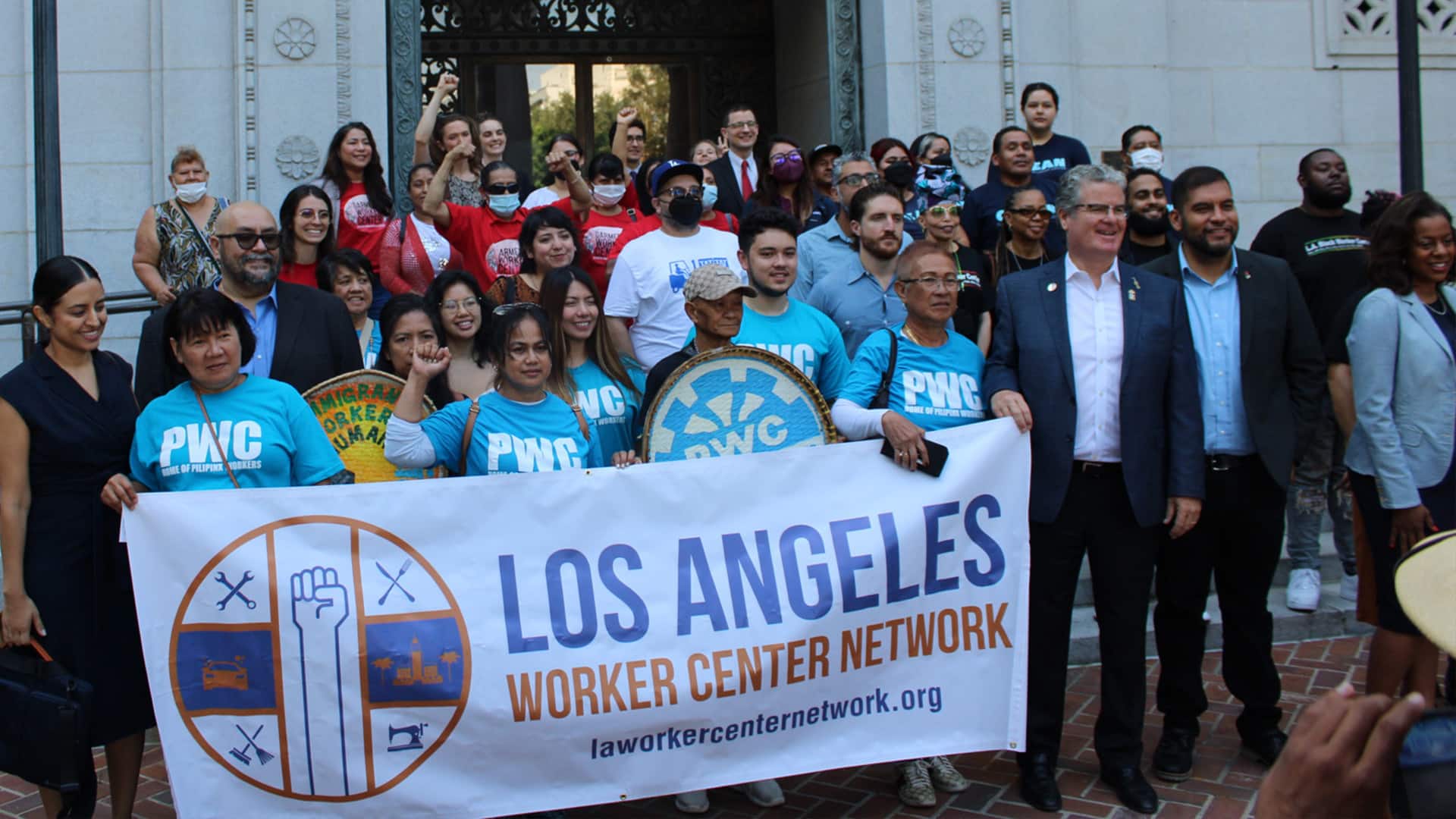Motions will strengthen enforcement of wage and hour violations in Los Angeles, and improve coordination between city departments to effectively respond to and support victims of wage theft.
LOS ANGELES – Councilmembers Hugo Soto-Martínez and Tim McOsker joined City Attorney Hydee Feldstein Soto and workers and advocates from the Los Angeles Worker Center Network today to unveil new legislation that would strengthen enforcement of wage theft violations in Los Angeles, which costs Angelenos an estimated $1.4 billion each year.
A whopping 88% of all low-wage workers in Los Angeles County experience wage theft. Immigrant workers, women, and people of color are all disproportionately victimized. For low-wage Angelenos, this adds up to an estimated 12.5% annual pay lost to wage theft, drastically contributing to housing insecurity, homelessness and poverty in the city.
One motion introduced on Friday looks to empower the City’s Office of Wage Standards to investigate violations of state wage and hour violations, along with employment violations like overtime, meal/rest break, late pay, and tips violations. Previously, only the state could investigate those, which led to underenforcement because of a lack of enforcement resources at the state level.
The second motion asks the Office of Wage Standards and the Civil + Human Rights and Equity Department to report back on how they can better collaborate so that no matter where workers report wage theft, they can get help. Currently, different city departments are tasked with enforcing various types of employment violations, which can lead to uneven implementation, underenforcement, and additional hurdles for workers looking to file claims.
“Wage theft is one of the most under-recognized drivers of poverty and homelessness in Los Angeles,” said Councilmember Hugo Soto-Martínez. “Even as stolen wages cost hardworking families in our city over $1 billion each year, our city and state are seriously lacking the resources needed to ensure that workers are able to receive the wages and benefits they earned.”
“Wage theft is rampant in Los Angeles and it’s time for the city to step up and do everything in our ability to protect our workers,” said Councilmember Tim McOsker. “We cannot allow businesses to prey on their lower-wage employees simply because the businesses don’t think they will be held accountable. We’re here to make the system work and stand up for our hard-working Angelenos.”
“Every worker, no matter who they are or what they do, deserves dignity, respect, and fair treatment, and nothing is fairer than paying workers what they’ve earned,” said Hydee Feldstein Soto, Los Angeles City Attorney. “I support this effort to secure more tools to fight wage theft and strengthen worker protections, and applaud Councilmembers Soto-Martinez and McOsker for bringing this legislation forward.”
“The Los Angeles Worker Center Network is encouraged by the City’s commitment to join community-based organizations in our efforts to improve the lives of workers, by prioritizing more efficient labor standards enforcement and creating opportunities for redress,” said Armando Gudino, Executive Director of the Los Angeles Worker Center Network. “We look forward to building an ongoing partnership that empowers our communities, the grassroots worker centers and working families we represent.”
In August, the councilmembers also introduced a motion asking for an analysis and recommendations from the City Attorney about what resources and staffing is needed to better prosecute cases of wage theft. This comes after the Los Angeles Worker Center Network released a concept paper finding that Los Angeles is the wage theft capital of the nation, leading cities like New York and Chicago in lost wages by 20%.
Now that the motions have been introduced, they will be heard in City Council’s Civil Rights, Equity, Immigration, Aging, and Disability Committee before moving to the full City Council for a vote.

